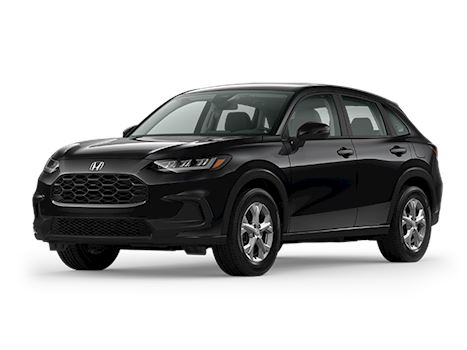What Fees Should I Expect to Pay When Purchasing a Car?
Once you've found a good car within your price range, you'll also need to think about the fees in the final contract. While these new car fees will be small in comparison to the price of the vehicle, it's important to look over these fees before continuing with the purchase.
Because while new car fees may seem small, these prices can add up quickly. Some of the most common car-buying fees are necessary and avoidable, like the title and registration fee and the sales tax.
However, there are some less common fees that you should look out for in your paperwork, as you might be able to negotiate these prices. We'll explain common fees that you will need to pay, as well as other negotiable fees, so that you can feel confident and prepared to purchase your car.
What Are Common Fees You Should Prepare for When Buying a Car?
Though fees may seem unimportant to your budget in comparison to the sale price of the vehicle, you should consider these costs as you plan your budget for buying a car. Often new car fees can add up to a sizeable amount. If you're buying a car at the top end of your budget without considering fees, you may end up with a car that is out of your range of affordability.
When you buy a car, a dealership will usually handle the title and registration process with your state's Department of Motor Vehicles. In addition, they'll also take care of ordering license plates for your car. All of these things are necessary and unavoidable if you want to drive on the road legally. The dealership will collect this fee from you and pass it along to the department. With this service, you won't have to worry about the process at all.
One of the biggest new car fees you may encounter is the sales tax, which varies by state. This fee sometimes takes people by surprise, as it can add thousands of dollars to the final cost of sale. If you buy a car in another state that has a lower sales tax, you'll most likely have to register the vehicle in the state in which you permanently reside. In that case, you'll pay the sales tax of the state where you will register the car, not the state where you bought it.
This cost covers the time and work the dealership put into preparing all the paperwork and documentation that goes into buying a vehicle. However, the cost of this fee varies wildly. Depending on the state you live in, documentation fees may or may not be legally capped. Some states have laws as to how much dealerships can charge for documentation fees, while other states don't have any limits set.
It's a good idea to check out your state's laws around this fee and find out what the dealership charges. Some states have this fee capped to less than $200, while in other states, dealerships charge around $800.
For this charge, you are paying to cover the cost of transportation from the manufacturer to the dealership. This fee is federally regulated, so no matter what state you live in, you'll pay the same price.


What Are Some Uncommon Fees That You May Encounter When Buying a Car?
While there are standard fees that you will find anywhere in the country while you're in the process of purchasing a car, there are also less common fees that you may run into while going through your contract. These fees may be negotiable depending on the dealership. Sometimes, these fees may even be dropped if you negotiate. But you should always ask the dealership's finance department if you don't understand or are concerned about a fee.
The dealership might try to add an additional fee to cover the cost of the car's advertisement.
You might encounter additional costs with market adjustments. When there is a short supply of cars in demand, a dealership may charge beyond the MSRP. Depending on the dealership, sometimes this fee can be negotiated down. However, if you really want a particular vehicle that's in high demand, you may end up having to pay this cost.
Dealerships might try to sell you extended warranties that last beyond the regular warranty coverage. If you are interested in this extra service, you'll have to pay this extra cost towards your final price.
For some states, a car must pass an inspection on safety and emissions before it can be bought. The dealership may put this fee into the contract for you to pay. However, it's usually a relatively small fee compared to others, with a range of $7-$40.
What Advice Should Shoppers Follow When Navigating Car Purchase Fees?
Overall, by taking the time to read your contract carefully and note any fees, you'll be able to stay within your budget. It's a good idea to get an idea of the fees a dealership charges early in the car-buying process, so you'll know whether it's affordable or not. You should also consider the overall value of the deal, like the interest rate and loan term, not just the monthly payment costs.
A car is an expensive purchase. With extra fees tacked onto the final sales contract, it can be difficult to know what kind of car you can afford. However, with enough research and budgeting, you can find the right car for your budget and preferences. Our selection of new Honda models offers a range of different price point options.